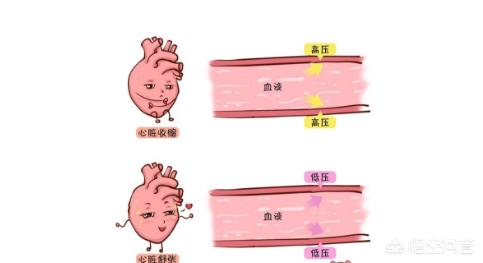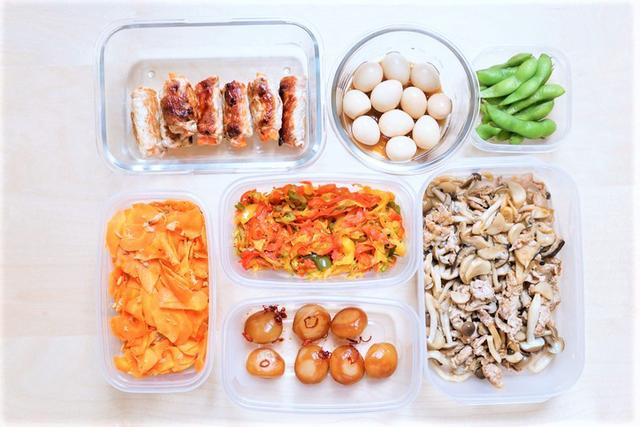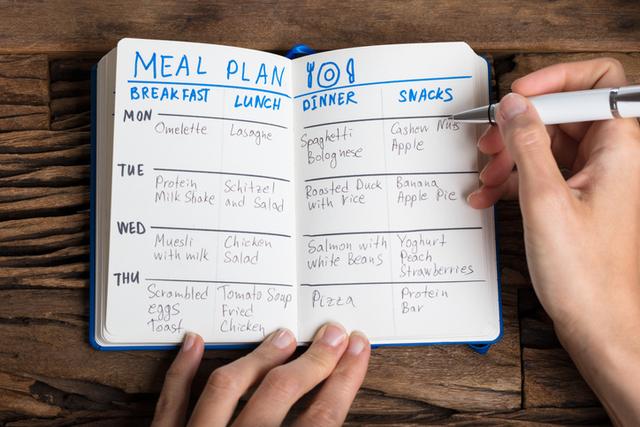Is it good for your body to eat less and more? Why?
Is it good for your body to eat less and more? Why?
With the increase of obese people, the phenomenon of overeating is also often presented in life, and this way of eating fewer meals has certain benefits for the body.
The Benefits of Eating Less and More:
Avoid stomach changes.The stomach has a certain contraction, that is to say, if each time you eat to overfill, will make the stomach bloat the larger, if the food is absorbed slowly, in the stomach for a long time, will lead to the stomach to produce the illusion that the body needs nutritious food capacity is naturally so big, and eat less and more frequent meals, you can reduce the swelling of the stomach too much, to avoid obesity, or premature aging of the stomach and other situations.
Blood sugar control.Especially for foods rich in powdered sugar or carbohydrates, eating fewer and more frequent meals can slow down the rate of glucose entering the bloodstream, effectively controlling the concentration of glucose in the bloodstream, and will not easily cause the symptoms of high postprandial blood glucose.
Control of blood pressure.Higher blood pressure is closely related to cholesterol, lipids and blood circulation. If you consume too much food at once, especially foods rich in fat, it will lead to the accumulation of fat in the blood vessels, cholesterol levels increase, and over time, it can also make the blood vessels narrowed, triggering high blood pressure, if you eat more frequent meals, so that the body can more fully digest these fats, and is not prone to cause blood vessel narrowing.
Food is easier to digest.Food digestion place is mainly in the stomach and small intestine, and these two places are also has a certain capacity, if the food piled up gathered, in order to keep the digestive tract smooth, they can not do to each kind of food completely absorbed, but randomly pick some easy to absorb, and then discharged out of the body. Maintain this situation for a long time, affecting the stomach and small intestine digestion and absorption capacity, when encountered more difficult to absorb the nutrients, they will show flatulence, indigestion and other gastrointestinal symptoms.
There are many benefits of the eating pattern of eating less and more meals, everyone experiences differently to get the improvement of physical symptoms, if you are not very clear about its benefits, try this way, your body will tell you the most accurate answer.
When dieting there is a method of "increasing the number of meals" called eating less and more often, and people tend to think that if they eat more, they will gain weight due to calorie overload, but it is worthwhile to eat in small steps to suppress appetite, prevent hunger, and prevent hunger-induced stress.
This time, I'll cover the effects of increasing the number of meals, the timing of eating, and the do's and don'ts.
What is the effect of increasing the number of meals?
Many people may think that increasing the number of meals they eat will make them gain weight. Of course, if you only increase the number of meals, then the total number of meals will naturally increase and you will gain weight. The key is to "eat without changing the total amount of food".

Inhibits the accumulation of body fat
Just like any other diet, increasing the number of meals you eat affects the production of the hormone insulin. If you eat a meal on an empty stomach, your blood sugar levels will skyrocket. And, when blood sugar levels spike, insulin production increases and body fat accumulates. Therefore, by shortening the interval between meals to prevent hunger and prevent an increase in blood sugar levels, the accumulation of body fat is inhibited.
Maintaining muscle mass
If you reduce the calorie intake in your diet, you lose more body fat. But at the same time, loss of muscle mass develops. One of the reasons the rebound occurs is that loss of muscle mass lowers metabolism and makes the body prone to weight gain. Therefore, it is important not to lose as much muscle as possible while dieting.
When starving, the body breaks down muscle and then produces fat for energy. By dividing the dietary structure, muscle failure due to lack of energy can be prevented and the proteins in the body's muscles can be diligently consumed. As a result, muscle mass can be maintained.
Key points for increasing meal frequency
First, calculate calorie intake
Before dividing your diet, calculate a guideline for the total number of calories you should consume each day. An easy way to do this is to use the formula "lean body mass x 40". For example, for a person who weighs 60 kg and has a body fat percentage of 20%, the lean body mass is 48 kg x 40 = 1920 calories. A good idea is to divide meals according to calorie intake.

Also, just because the calorie intake does not exceed calories, it cannot be said that a diet containing only carbohydrates is suitable for the human body. Please refer to the dietary components in the " PFC Balance" (Protein, Carbohydrate and Fat Balance) and don't forget to eat an unbiased diet.
The PFC balance is the proportion of the three main nutrients "P = Protein", "F = Fat" and "C = Carbohydrate" in the calorie intake. By adjusting this PFC balance, extreme nutritional deviations can be prevented and dieting can be healthy while adjusting the nutritional balance.
The target amounts of the three main nutrients that are indicators for the prevention and improvement of lifestyle-related diseases are listed below in the "Balance of energy-producing nutrients".
・Protein: 13~20%
・Fat: 20~30% (saturated fatty acid is 7% or less)
・Carbohydrates: 50-65%
However, this value is only an indicator for the prevention of diseases related to lifestyle habits. Therefore, it is necessary to change the value while dieting in order to achieve a balance suitable for dieting.
Use six meals a day as a guide
If you are trying this for the first time, try making a menu of 6 meals per day. If you eat 6 meals, you will eat about every 3 hours. The image is "breakfast, 10:00, lunch, 15:00, dinner, bedtime". It's a good idea to adjust your lifestyle and allocate time so that your meals are evenly distributed. Of course, the total calories from all meals should not exceed the previously calculated estimated calorie intake.

You can add some protein snacks
Protein is the quintessential snack for manufacturing the human body. If you dissolve it and drink it, you can take it immediately and get a rich source of protein. Other sweets like nuts are also good.
Adjustment of meal menus and quantities according to meal times
Balancing all the calories in your diet is great, but it is even more efficient when considering time and content. For example, more should be eaten in a pre-exercise diet (e.g. muscle training) to prevent a lack of energy during exercise. Or, since you don't move your body before going to bed, you should only consume protein and not sugar. Quantities and contents vary according to meal times.
A muscle answers, feel free to ask me questions.
It's okay, but I'm doing it the other way around. More food, less meals.
This question and answer are from the site users, does not represent the position of the site, such as infringement, please contact the administrator to delete.
